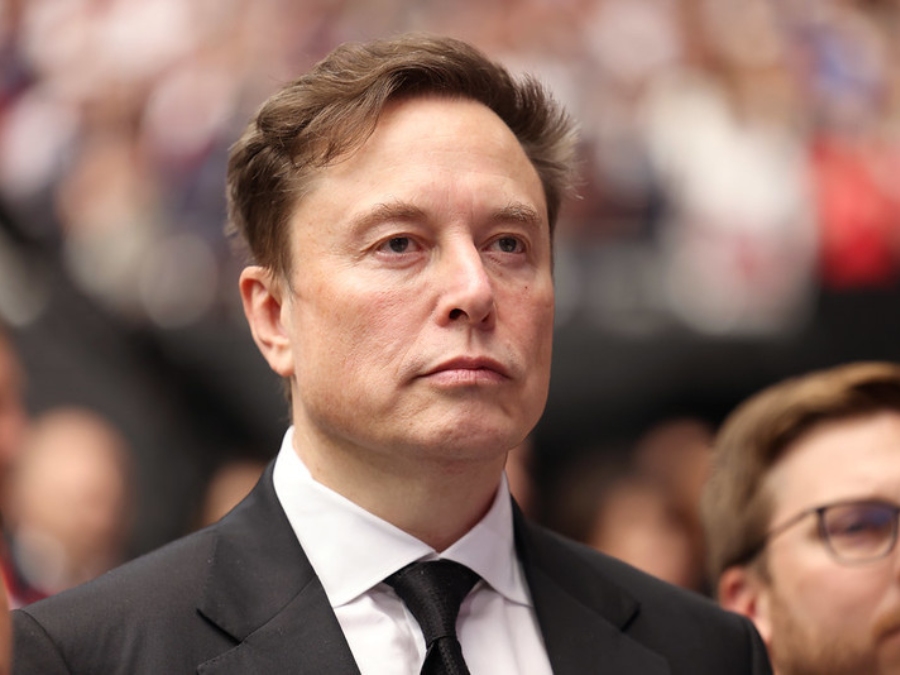Have you heard? Elon Musk may soon become the world’s first trillionaire. Tesla shareholders have approved a compensation plan that could push Musk’s wealth so far beyond the grasp of modern history that we don’t even have a conceptual framework for it.
The word “trillionaire” describes something that should not exist. A wealth so dense it warps morality around it. This kind of violence festers within the fissures of our cities and the exhaustion of people who duct tape collapsing systems together with their bodies.
You may unsubscribe from any of our newsletters at any time.
These are the neighbours who understand more than anyone that there is no such thing as an “ethical billionaire.” Wealth on that scale is never earned — it is extracted. And extraction is rarely just. The warehouse pickers, garment stitchers, line cooks, app drivers, farm labourers, data scrapers, janitors and delivery cyclists: these are the people who build a billionaire’s empire while barely making rent. They are the invisible scaffolding supporting limitless fortune.
Musk didn’t invent this system, but he’s become its most prominent apologist. He has already publicly mocked those suggesting billionaires should pay more taxes and resisted attempts by Tesla workers to unionize.
So, what does it mean to be entering an era of trillionaires?
More on Broadview:
- Chicago pastor says an ICE officer grabbed his throat during peaceful protest
- I study empathy — Elon Musk gets it all wrong
- Trump and the ruinous gospel of power
Scripture has a lot to say about economic justice. Leviticus 25:23 says, “But the land must not be sold beyond reclaim, for the land is Mine; you are but strangers resident with Me.”
To his followers, Jesus reflected on how difficult it is for a rich man to enter the kingdom of heaven, and the woes waiting to befall wealthy people intent upon joining his movement.
Jesus was shaped by the sacred texts of his people. Texts like Leviticus. It’s a book many of us avoid, weighed down by clobber passages and purity codes that, when stripped of their context and weaponized by those more interested in control than care, have caused significant harm. Also, prohibitions against shrimp and blended fabrics feel written for a world I don’t recognize.
But within the instructions about guilt offerings and cloven hooves, we meet a people struggling to survive the wilderness. And within those ancient particularities lies a deeper pattern that, like so much of scripture, points toward life and justice.
The Israelites knew the danger of unlimited wealth. In Leviticus, God creates a safeguard: Jubilee. Every 50th year, the system was intended to reset. Debts were forgiven, and land was returned and allowed to rest. Enslaved Israelites (though not foreigners) were released. Jubilee was a correction of accumulated wealth and a surety against power concentrating generation after generation. Perhaps it was also a recognition that without interruption, wealth hardens into authority, and authority into something difficult to dismantle.
Even Musk’s current wealth buys more than just yachts and rockets. Without running for office, he gained enormous influence within Donald Trump’s administration after the latter’s re-election in 2024. Musk was the single largest donor within the election cycle. He quickly became senior adviser to the president and led the department of government efficiency, which felt like a kind of newspeak to legitimize the harangues of a man with absolutely no background in public service.
Jubilee is a means to manufacture justice within the very fabric of the system. Today, its appeals aren’t difficult to find: calls to cancel student debt, demands to enact a guaranteed livable income, and pleas for the Global North to forgive the unjust and crushing debt strangling the Global South. In Canada, the Jubilee 2025 campaign reminds us that Jubilee isn’t simply the fringe demands of some past, distant era.
The world doesn’t need a trillionaire. It needs release. It needs return, and a justice that interrupts the cycle before the cycle breaks us for good.
***
Rev. Bri-anne Swan is the minister at East End United Regional Ministry in Toronto. For more insightful stories like this, subscribe to her Substack publication, Wilderness Times, in collaboration with Broadview.















A good read, though it makes my heart ache. Pity the Tesla purchaser who helps contribute to that trillion dollars. I want nothing to do with that brand! But similar situations occur with banking executives, Internet-company leaders, and founders of huge retail enterprises. And the church is not exempt: I have worked in churches where the senior minister took ten times as much home as the custodian or organist, yet the poorer individual still needed a home, car, food, and a pension.
Why are we caring about Musk’s wealth? Should we not be more interested in his Spiritual well being? Jesus didn’t knock people by what they had, He just said it would be harder to enter God’s Kingdom if you have wealth.
One of two things happen when a rich person decides whether or not to be a Christ follower.
Matthew 19:22 “But when the young man heard that saying, he went away sorrowful, for he had great possessions.” It wasn’t because he was rich, but he loved money more than God.
The account of Matthew, it indicates that Matthew left his business, but doesn’t specifically mention he left his wealth, in fact he threw a “look who I found / farewell” party for his friends.
Luke 19:8,9 But Zacchaeus stood up and said to the Lord, “Look, Lord! Here and now I give half of my possessions to the poor, and if I have cheated anybody out of anything, I will pay back four times the amount.” Jesus said to him, “Today salvation has come to this house, because this man, too, is a son of Abraham. These two tax collectors were notorious swindlers and friends with Roman oppressors. Christ still loved them and called them to be followers.
We are not called to judge Elon Musk, instead of telling him how evil he is (as we all are in different ways). Tell him how God loves him, and can do mighty things through him.
If you can’t do that, don’t buy his vehicles or use X.